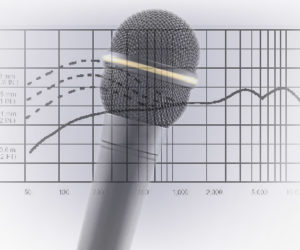ML: Part of the fun of these videos, for me, is watching the musicians talk to each other. Like a lot of engineers, I have a background in music, so it’s nice to let people see that part of the dialogue.
PM: That was part of the thing for Daryl, he wanted to kind of let people be a fly on the wall. He wanted people to see how it works – when you rehearse, work out songs, any aspect of the music, it’s a different side of it for most people.
People like us, the musicians and the engineers, deal with that on a regular basis, and we tried hard, reviewing all these clips of the classic artists that Daryl was interested in – the Temptations, Smokey Robinson, and so on – to find something where they were working in the studio, something that showed the process, and it was really hard to find any of that, so he thought, “Gee, why don’t we just do some of that ourselves?”
ML: A lot of artists are obviously very protective of their work when they’re working on it, which makes sense, but a side effect of that is you don’t see the creative process, and the result is with a lot of these legendary artists, a lot of that is lost. So I think what you guys are doing is very important.
PM: Yeah, and Daryl likes it with warts too, like, “Leave the flaws in! It is what is is! It’s OK! You don’t have to try to clean everything up and make everything sterilized,” and we don’t. We don’t clean things up, sounding like an Eagles semi-live record.
ML: On one of the episodes, he played the wrong chord at one point and he just said, “Well I’ll get it next time,” and that’s how it works, right? That’s how these things happen when you’re dealing with great artists, and it’s great that people can see that. So from an engineering standpoint, for you, is it just about staying out of the way and giving them the tools they need? What’s your role in that process?
PM: I try to stay out of it but I definitely get involved with the instrumentation and arranging aspects as much as I can, because as you know, trying to deal with it later is never as good as just getting it right up front. They (Daryl and the guest artists) generally rehearse things a day before, just go over the music to make sure they have a general understanding of everything that’s going on musically.
So we’ll just talk about things like what are we going to do instrumentation-wise? And how’s each song going to go? And I’ll make notes and say, “OK, if you’re going to play piano, let’s use this one. If you want to use a guitar here, remember this one needs to be fixed,” and so I’ll just be part of the whole equation in helping to make sure that we’re doing the right thing all along the way.
I get involved pre-production wise. Pre-production, as you know, is the key for something going smooth. After doing it for so long on the road, production is just making sure the problems don’t happen later.
ML: I like to say it’s solving the problem before anyone else knows there was a problem.
PM: Right! Shane (Theriot), our guitar player, is the music director for the whole thing and kind of the center point for all of it, and we discuss everything a long time in advance.
Also the music has to have clearances, so all the songs have to be chosen ahead of time because when we started we ran into the issues of “Well, gee, we can’t do that because we don’t have a license for the music.”
Once it goes out to the world, you have to do that legitimately and everyone has to be compensated for it, so we found out early on you can’t just do any song you feel like. You must make sure you have clearance on it ahead of time.
ML: Besides coming down to the club to see a show, people can tune in online in real time, right?
PM: Yes, there’s Facebook stream on the Daryl’s House Club page, and there’s also a video tab there that’s got all of the streaming shows that we’re doing. There’s a lot of shows still up there, probably at least 50 to 60 shows up with some really great artists.
ML: Thanks, Peter!





